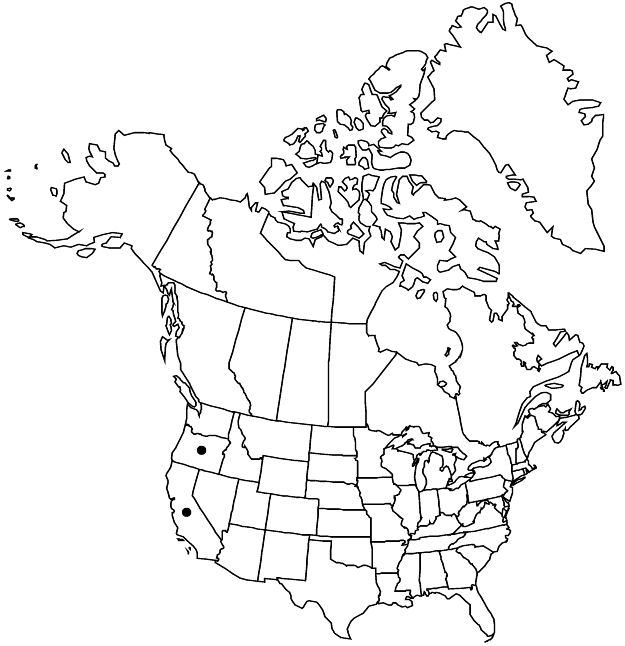Horkelia hendersonii
Fl. N.W. Amer., 180. 1898.
Plants 1.5–4 dm diam. Stems ascending to erect, 0.8–2(–2.5) dm. Basal leaves 3–8 × 0.7–1.5 cm; leaflets (5 or)6–12 per side, overlapping at least distally, cuneate to flabellate, 4–9(–10) mm, divided 1/2+ to midrib into 3–6 oblanceolate to obovate lobes (often medially notched more than 3/4 to midrib as well), silky villous. Cauline leaves 2–3. Pedicels 2–8(–10) mm. Flowers (2–)4–15(–20), 10 mm diam.; epicalyx bractlets linear, 2.5–4.5 × 0.2–0.5 mm, 2/3 to nearly equal to length of sepals; hypanthium 1–2.5 × (2–)3–4(–5) mm, ± 1/2 as deep as wide, interior densely villous; sepals spreading, narrowly lanceolate, 3.5–6 mm, silky hairs silky, 1–1.5 mm; petals often pink-tinged, linear to narrowly oblanceolate, 2.5–5 × 1 mm, apex ± acute to narrowly rounded, sometimes slightly mucronate; filaments pinkish, 2 × 0.5–0.7 mm, glabrous or sparsely pilose adaxially, anthers 0.5–0.7 mm; carpels 8–17; styles (1.5–)2–3 mm. Achenes dark brown, 2 mm.
Phenology: Flowering summer.
Habitat: Dry, metamorphosed granite and ultramafic talus slopes, in montane conifer woodlands
Elevation: 2000–2300 m
Discussion
Of conservation concern.
Horkelia hendersonii is one of the more attractive species of the genus, with its grayish mats and dusky pink inflorescences. P. A. Rydberg (1898) placed it initially in his group Capitatae, here restricted to H. fusca, and later (1908c) transferred it to his new group Tenuilobae, which otherwise comprised only H. tenuiloba. The species is known only from Jackson County, Oregon, and an isolated population in adjacent Siskiyou County, California. The populations are vulnerable due to their proximity to popular recreational sites.
Selected References
None.
